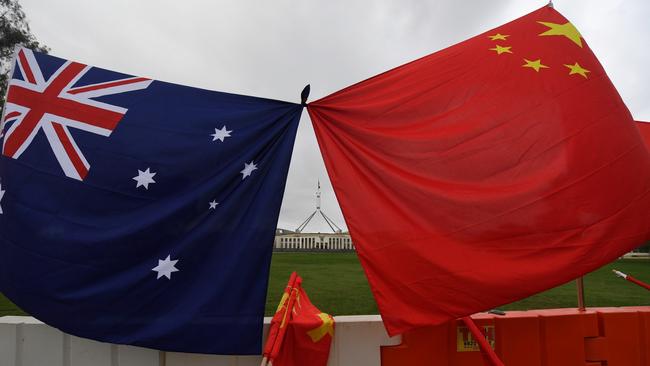Chinese-Australians in the crossfire of COVID and diplomatic backlash
One in five Chinese-Australians were physically threatened or attacked last year, a new survey reveals.

One in five Chinese-Australians were physically threatened or attacked last year, one of many disturbing findings in a new report funded by the department of Home Affairs.
In the most comprehensive study of the views of the 1.2 million people of Chinese heritage living in Australia, the Lowy Institute found one third of Chinese-Australians were called offensive names because of their heritage in the last 12 months.
The new survey – called “Being Chinese in Australia” – presents a group split over China’s influence in Australia’s politics, concerned about China’s portrayal in Australian media and supportive of sanctions against Chinese officials for human rights abuses.
“Chinese-Australians are too often spoken of as a homogenous group. Our results show they are really diverse,” Lowy research fellow Natasha Kassam, one of the authors of the survey, told The Australian.
Based on surveys of 1,040 people conducted in Mandarin and English in November 2020, the research explores what it was to be Chinese-Australian during the worst period in the relations between the two countries since recognition in 1972.
A series of five focus groups – in Sydney, Melbourne and online – were held in December and January in addition to the survey.
They underlined the human toll of the souring bilateral relationship and the stigmatisation of many Chinese-Australians after the new coronavirus emerged.
“Quite a few people said it was the first time they had been told to ‘go back to where they came from’, or have people not wanting to sit with them, or give them dirty looks,” said Kassam, a former Australian diplomat based in Beijing.
The research was funded by the Australian government. Some senior government officials have become increasingly concerned about the pressures on people of Chinese heritage.
Despite the unprecedentedly hostile last 12 months, more than three quarters of those surveyed said Australia was a “good” or “very good” place to live.
And 69 per cent of Chinese-Australians said they felt accepted in Australian society, rising to 75 per cent for Australian citizens and 74 per cent for permanent residents.
“People responded optimistically and positively about their sense of belonging in Australia and their pride in the Australian way of life, culture and values,” Lowy research fellow Jennifer Hsu, the report’s co-author, told The Australian.
“Those are heartening points that came out of the survey,” she said.
Gladys Liu, the Liberal member for Chisholm, said she was glad to see so many Chinese-Australians said Australia was a good place to live.
“When I first moved to Australia, I found Australians to be very warm and friendly. That hasn’t changed,” Ms Liu told The Australian.
“I would encourage any Chinese-Australians that don’t feel connected to reach out and join local groups and really see what Australia has to offer,” said the Hong Kong-born federal politician.
Whether asked about COVID, an economic downturn, climate change or foreign interference in Australian politics, Chinese-Australians were less anxious about threats to Australia than the broader Australian population.
Chinese-Australians were twice as likely than the broader Australian population to say the Australian media was too negative in its reporting about China.
Half of Chinese Australians thought the Australian media was too negative in its coverage of China, a third said it was fair and balanced, and another fifth said it was too positive.
The survey also found a profound gulf between Chinese-Australians and the broader Australian population on trust in China.
Only 23 per cent of the Australian population trusted China to act responsibly in the world whereas 72 per cent of Chinese-Australians trusted China to act responsibly.
There was also a deep split in attitudes towards China’s management of COVID-19. More than 40 per cent of Chinese-Australians said China’s handling of the coronavirus had made them more favourable towards its system of government.
Only 5 per cent of the broader Australian population said they had improved their opinion towards China because of its COVID-19 response.
And only 36 per cent of Chinese-Australians said democracy was preferable to any other kind of government. That was half the level – 71 per cent – in the broader Australian population.
Some views on Australia’s policy towards China were closely aligned.
Just under half of Chinese-Australians – 49 per cent – supported restricting scientific research between Australia and China in defence and security related fields. That support increased to 57 per cent across the broader Australian population.
More than two-thirds – 67 per cent – of Chinese-Australians supported imposing travel and financial sanctions on Chinese officials associated with human rights abuses, not far behind the 82 per cent support in the broader Australian population.
And two-thirds of Chinese-Australians wanted the Australian government to find other markets for Australia to reduce economic dependence on China.
Support for diversification in the broader population was 94 per cent, the highest agreement on any issue in the history of Lowy’s polling of Australians attitudes towards international relations.




To join the conversation, please log in. Don't have an account? Register
Join the conversation, you are commenting as Logout